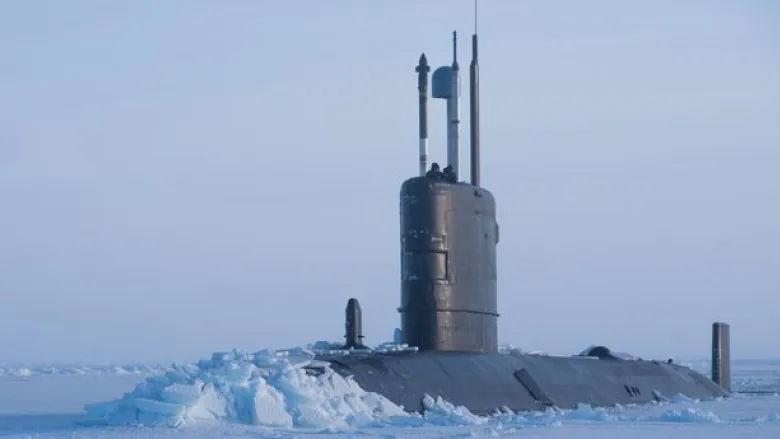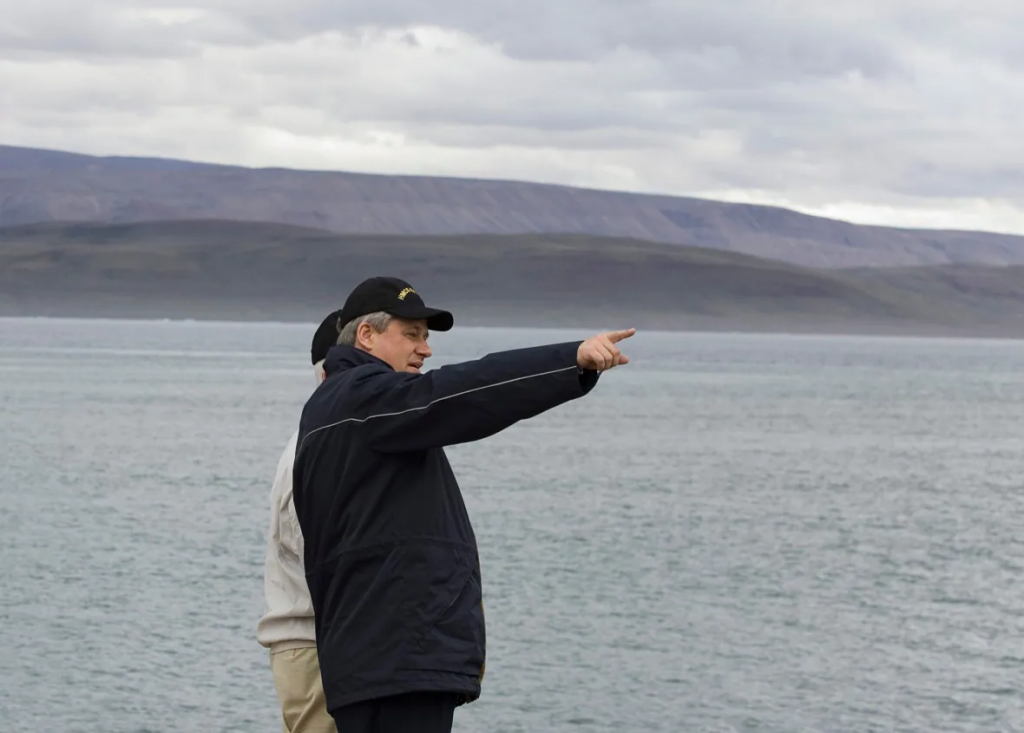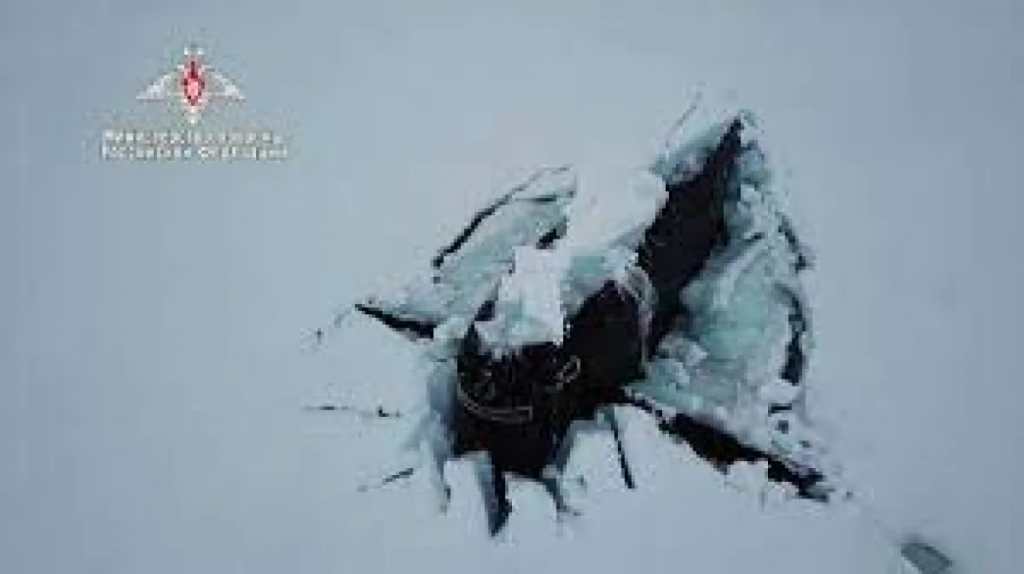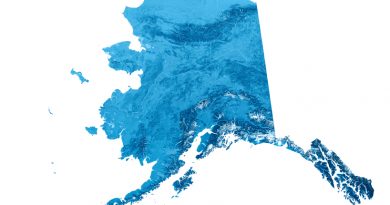Britain offers Canadian military help to defend the Arctic

Experts say that concerns about sovereignty have made Ottawa reluctant to let allies operate in the region
Britain is signalling its interest in working with the Canadian military in the Arctic by offering to take part in cold-weather exercises and bring in some of its more advanced capabilities — such as nuclear-powered submarines — to help with surveillance and defence in the Far North.
In a recent exclusive interview with CBC News, the United Kingdom’s top military commander said his country is “keen to cooperate” and learn more about how to survive and fight in a cold, remote setting.
Gen. Sir Nick Carter said Britain would also like to “cooperate in terms of helping Canada do what Canada needs to do as an Arctic country.”
The offer was quietly floated months ago in government circles. Experts say, however, that successive Canadian governments have been reluctant to allow anyone — even close allies — to become too deeply embedded in the region.
Much of that reluctance has to do with contested claims to Canada’s sovereignty in the Arctic. Concern over Canada’s exclusion from the recent security pact between the United States, the United Kingdom and Australia may lend fresh urgency to the U.K.’s proposal, however.
CBC’s interview with Gen. Carter was conducted before the AUKUS pact was announced.
As members of NATO, both Britain and Canada have taken part in winter warfare exercises in Norway. Gen. Carter said he believes that cooperation could be expanded to the benefit of both countries. The British Army has for many years conducted armoured and combined warfare training at Suffield, Alta.
Keeping a closer eye on the Arctic
The Arctic is becoming more of a focus for NATO and Canada’s closest allies. The potential threat posed by the reactivation of Russia’s northern Cold War-era bases, as well as the interest of possible adversaries such as China, figured promptly in speeches and panel discussions at the recent NATO leaders summit last June.
Canada’s former Conservative government placed a premium on increasing Canada’s military presence in the Far North; it built a naval refuelling station and set in motion the construction of Arctic Offshore Patrol Ships, which are just being delivered.

Those measures offer Canada’s military limited capabilities, however. Underwater and satellite surveillance of the region is still in the planning and early implementation phases.
Carter said the U.K. has capabilities that could help keep closer tabs on the Arctic’s rapidly melting seas and inlets, but it would be up to the Canadian government to decide.
“We would absolutely defer to Canada’s expertise in this,” Carter told CBC News.
“I think we have military capabilities, certainly in the maritime domain and in terms of our science that would be useful to Canada and I think operating alongside Canada in that regard is going to be clearly good for both countries.”
Going nuclear
What Britain has — and Canada lacks — is a fleet of nuclear-powered submarines, which can operate under ice for extended periods of time.
When Canada bought its current diesel-electric submarines from Britain in the late 1990s it embarked on a project to retrofit them with fuel cells that would have delivered better, longer under-ice performance. The plan fell through and was quietly shelved.
In the late 1980s, the Conservative government of former prime minister Brian Mulroney proposed buying 12 nuclear-powered submarines with the goal of using them for Arctic defence. The end of the Cold War and subsequent defence cuts caused the plan to be shelved.
The University of Calgary’s Rob Huebert, one of the country’s leading experts on Arctic defence, said that after a hiatus of almost a dozen years, the British rejoined the biennial American high Arctic military exercise in 2018 with their nuclear-powered submarines.
Back in March, the Russians deployed three ultra-quiet nuclear subs to simultaneously punch through the Arctic ice in the same location — a demonstration that set the defence community buzzing.

“We do not have the capability of engaging Russian submarines or Chinese submarines, if and when that ever becomes a reality,” said Huebert, speaking about the Canadian navy’s Arctic inventory. “That’s the No. 1 capability that the British bring to the Arctic.”
CBC News asked Defence Minister Harjit Sajjan’s office to comment on the notion of closer cooperation with the British in Canada’s Far North. The query went unanswered.
Huebert said successive Canadian governments have been reluctant to let the allies become more deeply involved in the region, beyond the Operation Nanook exercise held each summer.
“We’re fearful any type of involvement with NATO would undermine our sovereignty,” said Huebert, noting that both the United States and Britain do not recognize Canada’s claim to the Northwest Passage.
Canada needs to show the flag: defence expert
The British offer of cooperation and assistance is a wake-up call for the Liberal government on several different fronts, said Dave Perry, a vice-president of the Canadian Global Affairs Institute.
It is, he said, a reminder that Canada needs to be more present in the region.
“There have been [Canadian] commitments to increase the situational awareness there, but that has a long way to go and the thing for Canadians to remember is that it is our actual territory and our backyard,” he said.
“I think it is great to work with other people, but we should be doing what we can to make sure we have a home field advantage.”
With Australia planning to acquire nuclear submarines — which conceivably could operate in the Arctic as well — Perry was asked if Canada will have to rely more on its allies to monitor and defend its territory.
“I think the AUKUS deal is an indicator that there are some countries with whom we have been intimately familiar and intimately allied with. Some of our best friends on the planet are firming even tighter, smaller clubs,” he said.
“The United States under successive administrations is being far less benign about allies that they look at as pulling — or not pulling — their weight … The United States is looking for people who will pull their weight.”
Related stories from around the North:
Canada: Potential Canadian Northern Corridor would present unique security challenges and opportunities, say researchers, Eye on the Arctic
Finland: Nordic fighter jet exercises underway inside Arctic Circle, The Independent Barents Observer
Iceland: Nordics should aim for common approach to China’s Arctic involvement says report, Eye on the Arctic
Russia: National security chief says Russia must bolster its Arctic military, The Independent Barents Observer
United States: Putin, Biden talk Northern Sea Route, The Independent Barents Observer



